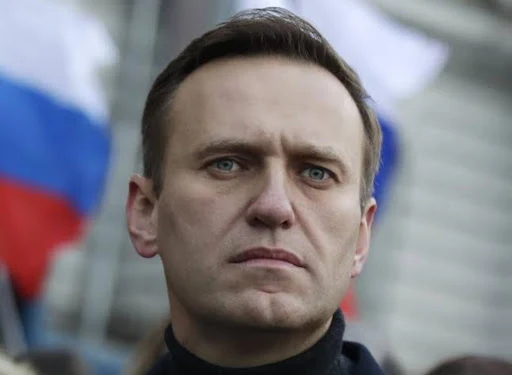Prominent Putin Critic Succumbs in Arctic Circle Prison, Raising Concerns of Foul Play and Further Dividing International Relations
Navalny, 47, had long been a thorn in the side of the Kremlin, exposing alleged corruption through investigations and organizing anti-government protests. His imprisonment in 2021 drew condemnation from the West, with many viewing the charges against him as politically motivated.
News of his sudden death sent shockwaves through Russia and beyond. While the Russian prison service claims he fainted during a walk and died despite medical efforts, skepticism abounds. His supporters, citing his previous 2020 poisoning with a nerve agent, allege foul play and demand a thorough investigation.
Uncertainty Clouds Cause of Death, Fuelling Speculation and Anger
The lack of clear information surrounding Navalny's death has created a volatile environment. Western leaders, including US President Joe Biden, have echoed concerns about foul play and urged Russia to conduct a transparent investigation. The European Union has joined the chorus, demanding accountability and expressing deep sorrow.
Within Russia, reactions are similarly divided. While some mourn the loss of a prominent figure, others echo the official narrative, blaming pre-existing health conditions. However, a palpable sense of unease hangs in the air, with many harboring doubts and fearing retribution for expressing any dissent.
Navalny's Legacy: A Symbol of Resistance Silenced, or a Catalyst for Change?
Navalny's death leaves a gaping void in the Russian opposition movement. He was a beacon of hope for those yearning for democratic reforms and accountability. His passing undoubtedly represents a major setback for dissent within the country.
However, his legacy may extend beyond his physical absence. His courage in taking on Putin's regime has inspired many, and his calls for anti-corruption measures continue to resonate. His death might inadvertently galvanize the opposition, igniting further resistance, particularly among younger generations disillusioned with the current political climate.
International Tensions Escalate Amidst Calls for Accountability
The circumstances surrounding Navalny's death are poised to exacerbate already strained relations between Russia and the West. Accusations of foul play threaten to derail any thawing of diplomatic ties, further isolating Russia on the international stage.
The incident could also hinder peace efforts in the ongoing Ukraine conflict, where both sides already hold deep mistrust towards each other. The lack of transparency and potential implications of Navalny's death add another layer of complexity to an already volatile situation.
Moving Forward: Questions Remain, Uncertainties Abound
As the world grapples with the sudden demise of Alexei Navalny, questions continue to linger. Was it a tragic medical event, or something more sinister? Will an impartial investigation be conducted? What impact will his death have on the future of Russia and its relationship with the world?
Only time will tell how this saga unfolds. However, one thing is certain: Navalny's death has left an indelible mark, shaping the political landscape of Russia and potentially influencing the course of international relations for years to come. His legacy, whether silenced or amplified, will continue to inspire, challenge, and divide, ensuring that his name remains etched in the history of modern Russia.
 Reviewed by AiShiva Insights
on
February 17, 2024
Rating: 5
Reviewed by AiShiva Insights
on
February 17, 2024
Rating: 5








No comments